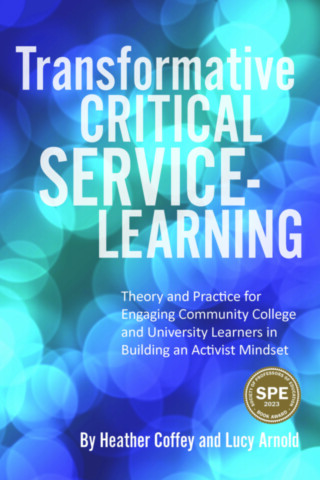Heather Coffey
Dr. Heather Coffey is a Professor in the Department of Middle, Secondary and K-12 Education at the University of North Carolina Charlotte. She serves as the Director of the UNC Charlotte Writing Project and the Teaching Fellows Program. Dr. Coffey's primary teaching responsibilities include graduate English language arts methods as well as service-learning courses. Her research interests include ways to develop critical literacy with urban learners, bridging the gap between educational theory and practice in teacher education, and supporting in-service teachers in urban school settings through professional development. Dr. Coffey's record of publication includes book chapters and articles in refereed practitioner and research journals. She is currently investigating the ways in which urban learners can develop agency through research and writing and work for social justice in their communities. Heather is a native of Charlotte, North Carolina and considers herself lucky to be partnering with the community that supported her growth and development throughout her childhood. When she is not teaching, researching, and serving, Heather enjoys running and hiking in the mountains with her husband, two daughters, and sweet labradoodle, Finn.
Books by Heather Coffey:

A 2023 SPE Outstanding Book Honorable Mention
Transformative Critical Service-Learning offers hands-on tools for implementing, reflecting on, and assessing critical service-learning in classrooms and community spaces. Answering a need from practitioners for a practical tool for making sense of critical service-learning, the authors introduce the Critical Service-Learning Implementation Model as a way to encourage conversations among stakeholders. Materials include specific criteria to examine, examples of application and context, and ways to incorporate the model into reflective practices. Valuing partnerships, reflection, and analysis of power dynamics, the research and strategies offered here provide an entry point for faculty new to critical service-learning, while also offering new ideas and tools for long-time practitioners. Chapters offer particular attention to strategies for engaging students, syllabus development, and reflective cycles. Additionally, the authors offer a model for faculty development in the area of critical service-learning at the institutional level, including suggestions for faculty and administrators interested in increasing engagement with social justice and community spaces.
As institutions of higher education are focusing more on the ways in which they can meet the needs of the communities surrounding their campuses, The Carnegie Foundation’s Elective Classification for Community Engagement provides a special-purpose designation for higher education institutions with commitments in the area of community engagement. Universities must commit to institutional change in order to improve the outcomes for the communities surrounding the campus. The classification framework represents best practices in the field and encourages continuous improvement through periodic re-classification. Service-learning has been identified as one of the more effective methods for engaging undergraduate and graduate students in community engaged scholarship, which facilitates development of critical inquiry, understanding needs assessment, and deep reflection on inequality. The authors intend this book to benefit university faculty endeavoring to begin or develop service-learning courses, higher education administrators who want to train and engage university faculty in adopting a more community engaged teaching model, and P-12 teachers, who often serve as community partners with higher education institutions to facilitate justice-oriented approaches to teaching their diverse students.
Perfect for courses such as: Critical Thinking and Communication/Service-Learning │ Service-Learning Capstone │ Pathways to Effective Community Engagement │ School and Community Collaboration │ Teaching to Transform Society │ Food, Environment, and Sustainability │ Race and the Right to Vote in the US │ Education and Society │ Environmental Education │ Race, Place, and Memory
Library E-Books
We are signed up with aggregators who resell networkable e-book editions of our titles to academic libraries. These editions, priced at par with simultaneous hardcover editions of our titles, are not available direct from Stylus.
These aggregators offer a variety of plans to libraries, such as simultaneous access by multiple library patrons, and access to portions of titles at a fraction of list price under what is commonly referred to as a "patron-driven demand" model.
E-books are now distributed via VitalSource
VitalSource offer a more seamless way to access the ebook, and add some great new features including text-to-voice. You own your ebook for life, it is simply hosted on the vendor website, working much like Kindle and Nook. Click here to see more detailed information on this process.



